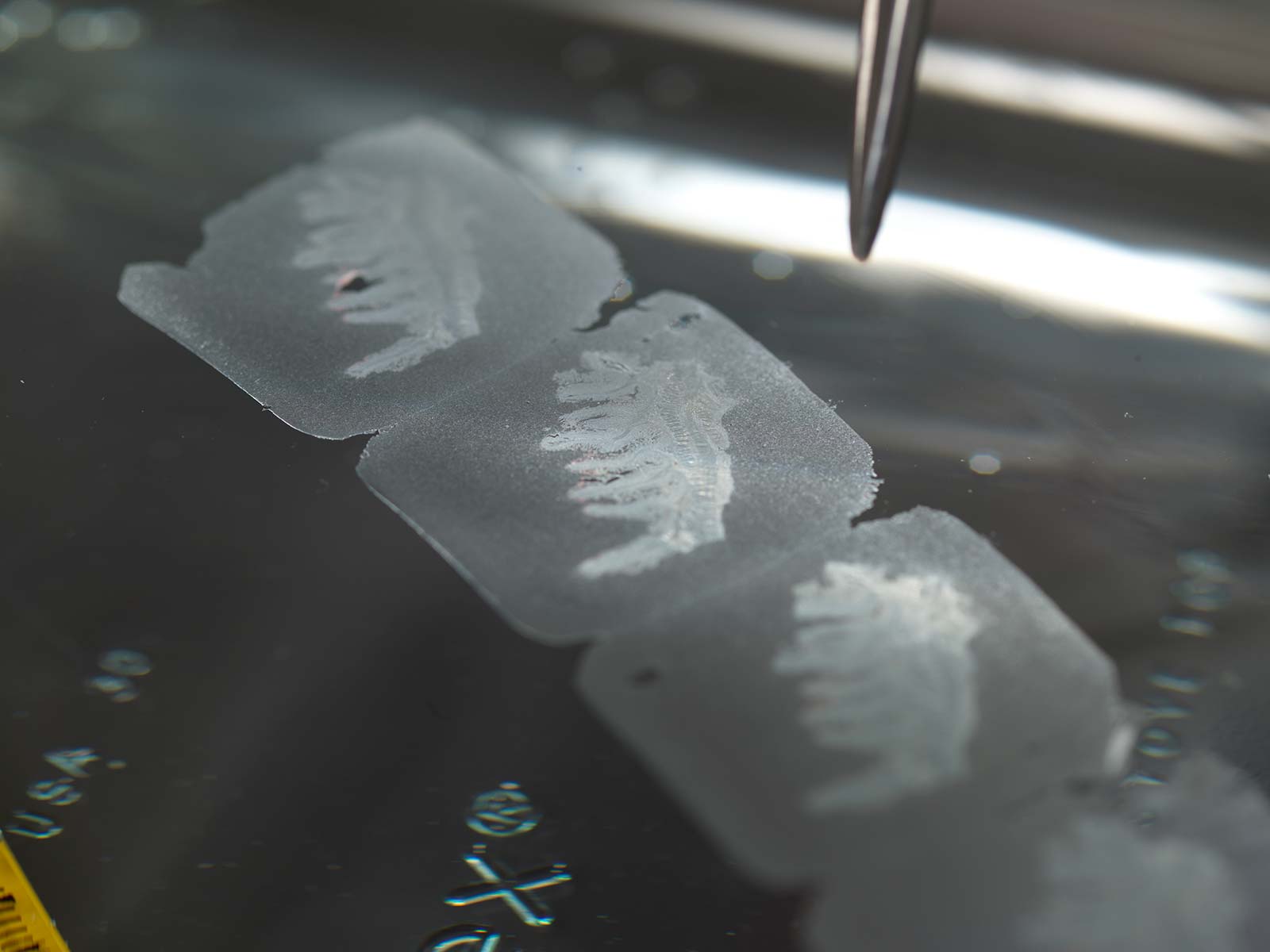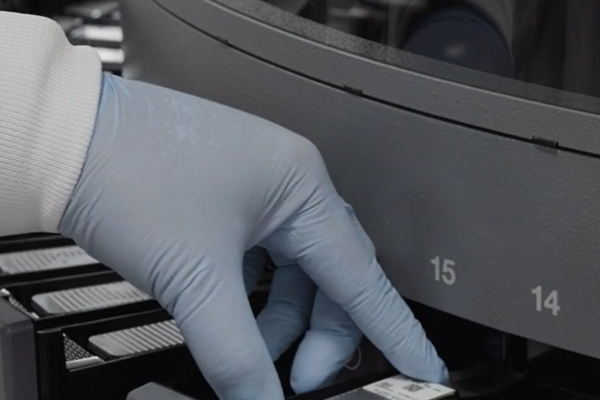From handling of wet tissue biopsies, paraffin blocks or unstained tissue sections, anatomic pathology laboratory teams follow robust processes using the same platforms across the global network of labs to assure consistent data. In-house automated stainers manage routine H&E staining as well as more specialized staining. Highly trained histotechnologists follow strict and exacting manual staining processes to assure consistent results.
Specialty staining, including fluorescent in situ hybridization (FISH) / in situ hybridization (ISH) and immunohistochemistry (IHC) and digital imaging supports studies in oncology, non-alcoholic steatohepatitis (NASH) and other therapeutic areas. Multiplex immunofluorescence (IF) and IHC capabilities provide quantifiable data concerning the relationship between cells and their density in a specific area. Analysis of this high-content data allows comparison of pre- and post-treatment tissue to help assess and predict therapeutic efficacy in specific disease states or in specific patient populations.
Digital pathology services are designed to enhance efficiency and provide near real-time access to images. State-of-the-art Aperio Leica AT2 Turbo scanners quickly provide consistent digital images, which are available in the central image database shared by all sites as soon as scanning is completed. Mass file transfer can be conducted daily for sponsor access to images, and semi-automated file transfer solutions are being developed to further speed the file transfer process.
Pathology services are provided by a global team of pathologists with experience across a broad array of pathology sub-specialties and disease states, including liver disease, women’s health, and a full spectrum of oncology (including hematopathology, breast and GI pathology, uropathology and dermatopathology).


